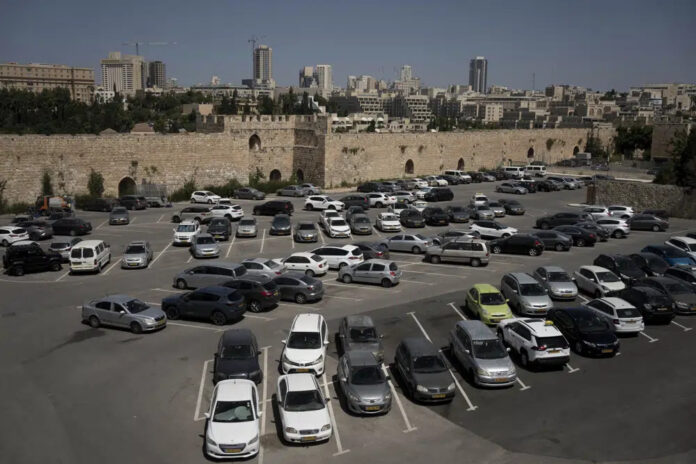By Ella Chakarian
For more than 200 days, Setrag Balian, a fourth generation Jerusalemite-Armenian, has camped out in a tent in the Armenian Quarter of the Old City in Jerusalem. A ceramicist by trade, Balian is a co-founder of Save the ArQ, a group dedicated to blocking a murky development project that would forever alter the quarter’s character.
In trying to scuttle the deal and preserve the Armenian Quarter, Balian’s group is facing off against Israeli developers who have been photographed with top representatives of an organization called Ateret Cohanim, which bills itself as “the leading urban land reclamation organization in Jerusalem, which has been working for over 40 years to restore Jewish life in the heart of ancient Jerusalem.” Ateret Cohanim has been involved in contentious property disputes in the past: most notably an almost-two-decades-long legal battle with the Greek Orthodox Church over control of three properties in the Old City. Ateret Cohanim representatives deny any connection to the Armenian quarter dispute, which involves a valuable patch of the Old City known as Cows’ Garden.
The catalyst for confrontation is a sweetheart real estate leasing deal under which Israeli developers would gain the right to build a luxury hotel in Cows’ Garden in exchange for a surprisingly low annual payment of $300,000 to the Armenian Patriarchate, which controls the property. Members of the Armenian community in Jerusalem, alleging skullduggery on the part of those who secretly negotiated the deal, have sued to block it. But those who stand to benefit are not giving up easily — hence the standoff.
“Armenians have been in Jerusalem since the fourth century,” said Balian. “The Patriarchate has been there as an institution since the 7th century. It is a very important plot of land.”
Under the original agreement, signed in secret in 2021, the Armenian Patriarchate granted an Israeli entity, Xana Gardens Ltd, a 98-year lease to develop Cows’ Garden and some adjacent areas, including land covering the Patriarchate’s seminary. When the deal became public it caused an uproar among local Armenians. Responding to the backlash, the Patriarchate moved to invalidate the agreement in October 2023. Since then, the matter has been mired in legal wrangling.








